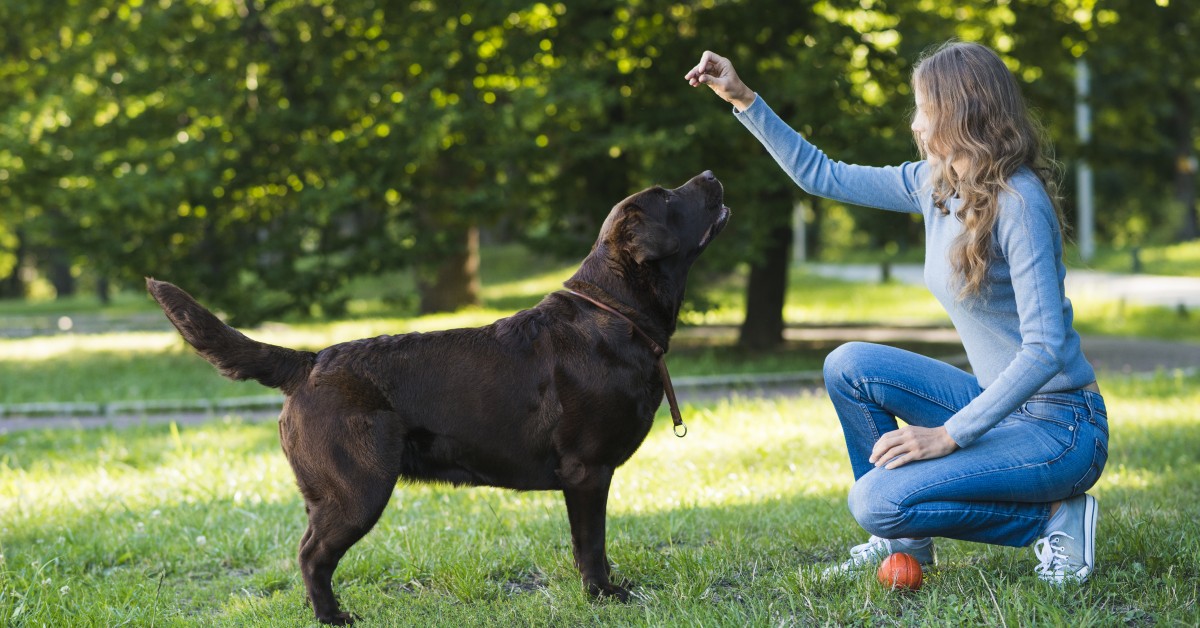What to Look for in a Dog Trainer
Learn how to choose the right dog trainer to set your pup up for success.

When it comes to raising a well-mannered dog, professional training can make all the difference. Whether you’ve just brought home a rambunctious puppy or you’re working with an older canine that needs some behavioral adjustments, finding the right trainer is one of the most important decisions you’ll make for your pet’s long-term happiness and success. A good trainer does more than teach sit, stay, and heel. They build trust, foster communication between you and your dog, and help strengthen the bond you share.
But with so many options available, how do you know which trainer is right for you and your four-legged friend? Let’s look at the key qualities and considerations to look for when choosing a dog trainer.
1. Dog Training Philosophy and Methods
Every trainer has their own philosophy when it comes to working with dogs, and it’s important that their methods align with your values. Positive reinforcement dog training, which involves rewarding good behavior with treats, praise, or play, is widely regarded as the most effective and humane approach. It focuses on teaching dogs what to do rather than punishing them for what not to do.
Trainers who rely on harsh corrections, intimidation, or outdated dominance theories may get quick results, but these methods can harm your dog’s confidence, damage your relationship, and even create fear-based behavior issues. When interviewing a trainer, ask them to explain their techniques and make sure they emphasize kindness, patience, and consistency.
2. Dog Training Credentials and Continuing Education
While formal certification isn’t legally required to become a dog trainer, many of the most reputable trainers pursue professional education to strengthen their knowledge. Look for certifications from respected organizations, such as:
- CPDT-KA (Certified Professional Dog Trainer – Knowledge Assessed)
- IAABC (International Association of Animal Behavior Consultants)
- Karen Pryor Academy (KPA-CTP Certified Training Partner)
Membership in professional organizations also shows a commitment to high standards and ongoing education. The world of animal behavior is constantly evolving, so a trainer who stays current with new science-based approaches is better equipped to handle a wide range of training challenges.
3. Experience With Your Dog’s Needs
Not all dogs, or training goals, are the same. A trainer who specializes in puppies may not have as much experience with reactive adult dogs. Similarly, some trainers focus on basic obedience, while others excel at advanced skills, agility, or addressing behavioral issues like separation anxiety or aggression.
When speaking with a trainer, be upfront about your dog’s needs and challenges. Ask if they’ve worked with dogs of similar temperament, breed, or behavior concerns. Real-world experience with cases like yours can give you confidence that the trainer knows how to help.
4. Training Environment and Class Structure
The setting in which your dog learns can make a big difference in their progress. Some trainers offer group classes, which provide great opportunities for socialization and distraction training. Others focus on private sessions, which allow for personalized attention and tailored lessons.
Consider what environment will work best for your dog’s personality. Shy or anxious dogs may do better in one-on-one sessions at first, while outgoing pups may thrive in a group setting. In addition, check that the training space is clean, safe, and well-managed to create a positive learning atmosphere.
5. Communication and Teaching Style
Training isn’t just about the dog. It’s also about teaching you how to handle your dog effectively. The best trainers are excellent communicators who can break down concepts in ways that are easy to understand. They’ll demonstrate techniques, observe your interactions, and give constructive feedback to help you grow as a handler.
If a trainer seems inpatient, dismissive, or unwilling to answer your questions, that’s a red flag. Look for someone who is approachable, encouraging, and genuinely invested in helping both you and your dog succeed.
6. Reviews, References, and Reputation
Before committing to a trainer, take some time to research their reputation. Online reviews, testimonials, and social media pages can provide valuable insight into other clients’ experiences. Better yet, ask for references you can contact directly.
Pay attention to feedback about the trainer’s professionalism, reliability, and results. While no trainer will have a perfect record, consistent positive reviews are a good sign. Also, don’t underestimate word-of-mouth recommendations from trusted friends, veterinarians, or local pet professionals.
7. Red Flags to Avoid
Just as important as knowing what to look for is recognizing warning signs that a trainer may not be the right fit. Be cautious if you notice any of the following:
- Reliance on punishment or physical corrections.
- Promises of quick fixes or guaranteed results.
- Refusal to let you observe a class before committing.
- A lack of clear communication or transparency about methods.
- Pushing products or services unrelated to training.
Choosing the wrong trainer can set back your dog’s progress and damage your relationship, so trust your instincts and move on if something doesn’t feel right.
Building a Partnership that Lasts
Ultimately, the right dog trainer should feel like a partner in your pet’s journey. Training is not a one-time event, but rather an ongoing process that requires commitment from you, your dog, and the trainer. Supportive and professional dog training will equip you with the tools and strategies you can use long after the sessions are over.
Ready to start saving money on pet wellness care?
Then take a look at Mint Wellness, the pet wellness plan that provides fast reimbursement on routine pet care. Save on vaccinations, wellness exams, preventatives, dental, and more!
Learn More


